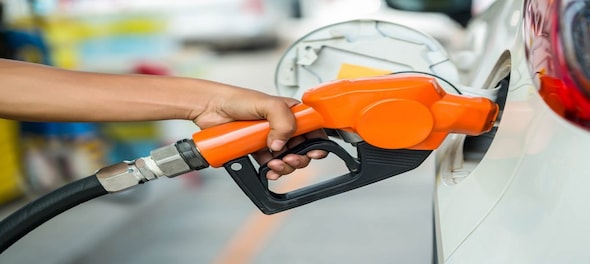
Fuel rates in India have risen sharply in recent weeks amid persisting supply concerns in the wake of the Russia-Ukraine war. Between March 22 and 31, the rate of petrol has increased from Rs 110 to Rs 116.72 a litre in Mumbai, rising by Rs 6.40 for each litre. In Delhi too, from Rs 96.21 per litre on March 22, it has climbed to Rs 100.94 on March 31.
The rising cost of fuel prices means an increase in the per kilometre spend on bikes and cars, thereby further adding to the inflationary woes of the common man and reducing their spending power. While a cut in excise duty on fuel would may really help the aam aadmi, here are some ways to make vehicles go that extra mile:
Use a smaller, lighter car
There are a number of things you can do to reduce your fuel use. The obvious one is to not use your car, but walk or grab your bicycle, if possible.
If you do have to drive, try to minimize your total travel distance. One way would be to combine a number of errands into your journey and optimize your route. The specific vehicle you use also matters. As a general rule of thumb, the larger and heavier your car, the more energy and fuel it will require per kilometre. Choosing a smaller car, rather than a large SUV, will definitely reduce your fuel bill. A large SUV will use almost twice as much fuel per kilometre as a small car.
Research also suggests that for every 100kg increase in vehicle weight, fuel consumption increases by about 5 percent to 7 percent for a medium-sized car. So in addition to driving a smaller car, it's best to reduce your load and avoid driving around with extra weight.
Use eco-driving techniques
The way you drive is important too. Eco-driving involves being conscious of your fuel consumption and taking actions to reduce it. Every time you brake and stop, you have to accelerate again to reach your desired speed. Acceleration uses a lot of energy and fuel, so driving smoothly, anticipating traffic and preventing stops will lead to savings on your fuel bill. What you want to do is flow with the traffic and keep your distance from other vehicles. It also helps to keep an eye further up the road, so you can avoid obstacles and therefore unnecessary braking and acceleration.
If you're in the minority of people who own a manual vehicle, drive in the highest gear possible to reduce engine load and fuel use. And if you're in an automatic vehicle, use the eco setting if you have one.
Give your engine and climate a break
Another simple tip is stop unnecessary idling with the engine still engaged. A small car typically uses one litre of fuel per hour while idling, whereas this is close to two litres per hour for a large SUV.
Of course, we idle regularly while waiting in traffic and generally can't do much about that, other than trying to drive outside peak hours when roads are less congested. In other cases, we can change things. For instance, idling when a vehicle is parked will use up fuel unnecessarily.
Turn off the AC
Most people may not realize this, but using your air conditioner can use up quite a bit of extra fuel: somewhere between 4 percent and 8 percent of total fuel use. Using the fan instead will require less energy than air conditioning. Or even better, wind down the windows for a bit for fresh air.
Tend to your tires and consider aerodynamics
It also pays to keep your tires inflated, which can save you between 2 percent and 4 percent in fuel use. Also, your car is designed to be aerodynamically efficient. Anything that changes that, including roof racks, bull bars and bike racks, will come with an additional fuel penalty particularly at higher speeds, such as on the freeway.
Check out our in-depth Market Coverage, Business News & get real-time Stock Market Updates on CNBC-TV18. Also, Watch our channels CNBC-TV18, CNBC Awaaz and CNBC Bajar Live on-the-go!


BJP is planning to ban RSS, says Shiv Sena (UBT) chief Uddhav Thackeray
May 18, 2024 8:01 PM
Punjab Lok Sabha elections: Complete list of Congress candidates
May 18, 2024 4:08 PM
Punjab Lok Sabha elections: Check full list of AAP candidates and constituencies
May 18, 2024 12:59 PM
PM Modi, Rahul Gandhi election rallies in Delhi today: Here are the routes to avoid
May 18, 2024 11:28 AM

